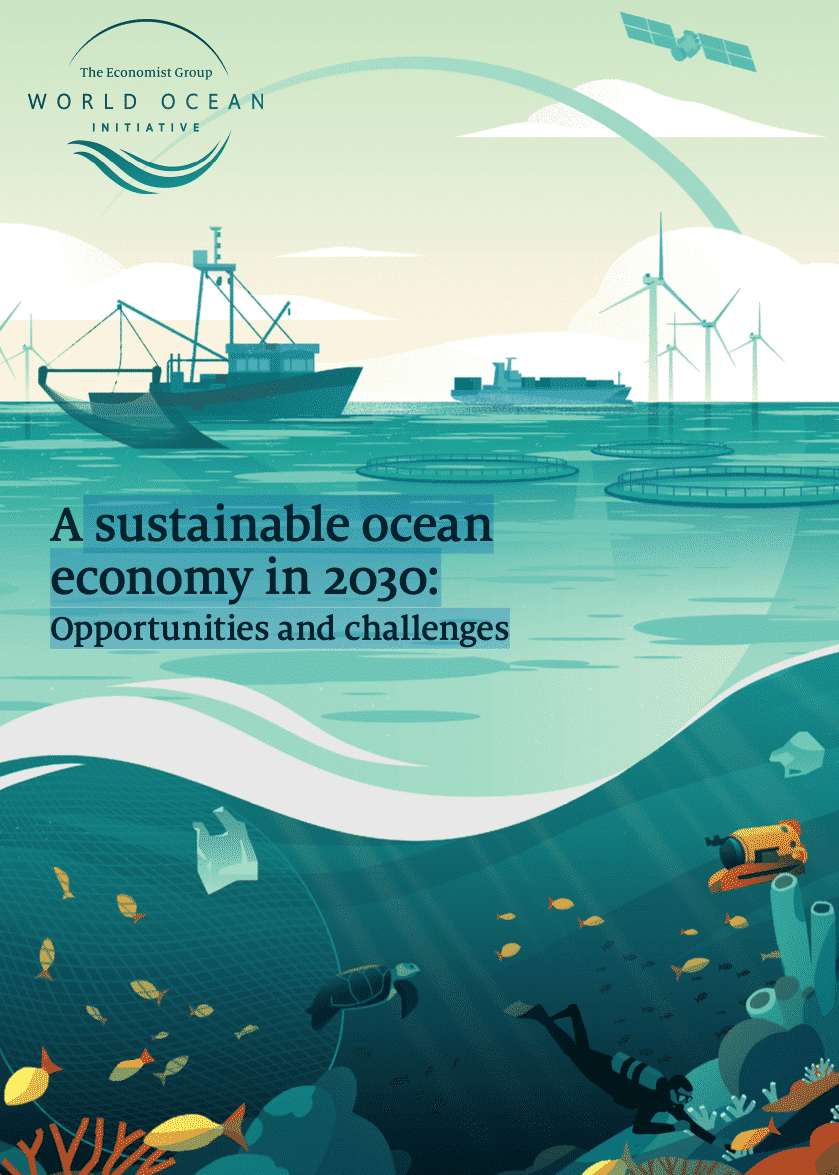The Economist Group’s World Ocean Initiative published on the occasion of World Oceans Day, June 8, 2020. The report “A sustainable ocean in 2030: Opportunities and Challenges.” assesses the challenges facing key sectors, including seafood, shipping, tourism and renewable energy.
See here the nine chapters and their main topic.
1. The blue economy and covid-19
The coronavirus crisis has severely aected many marine industries. But the fundamentals driving the transition to a sustainable ocean economy remain strong.
2. Financing ocean sustainability
To finance a sustainable ocean economy, investors need to channel capital away from damaging activities such as overfishing and towards opportunities in zero-carbon shipping, marine conservation and bio-technology.
3. Welcome to the blue data revolution
Data, analytics and digital tools oer myriad opportunities to protect the ocean from illegal and unsustainable activities, while companies can benefit from increased eciency and transparency.
4. Sustainable seafood solutions
From traditional wild-capture fisheries to aquaculture and cell-based production, the ways that humans derive food from the sea are evolving fast.
5. Shipping and the energy transition
Shipping has the opportunity not only to decarbonise its own business, but to help other energy-intensive sectors move away from fossil fuels and towards zero-carbon hydrogen and renewable electricity.
6. Ocean renewables come of age
Oshore wind technology has come a long way from the niche, expensive option it was seen
as just a few years ago, while other marine renewables are showing promise.
7. Sun, sea, sand…and sustainability?
Coastal and marine tourism relies on a clean and healthy environment. What are companies doing to protect their greatest resource? Is there such a thing as sustainable “blue” tourism?
8. Tackling marine plastic pollution
The need to end marine plastic pollution
is driving solutions to improve waste management, develop alternative materials and increase reuse and recycling.
9. Can nature and technology help fix the climate?
Scientists and businesses are looking at ocean- based natural and technological ways to remove carbon from the atmosphere and reduce the impact of climate change, creating opportunities in the blue economy.

As I wrote recently in my blog, I find it is interesting to see how the concept of the Blue Economy, apparently losing its independence after COVID-19. In the report, it is once again increasingly seen and addressed as a part of the Green Economy.
I have to admit, before VOVID-19 there was an undeniable tendency to define the Blue Economy as a paradigm on its own. My perspective was and is, that Blue and Green Economy are mutually supportive.

